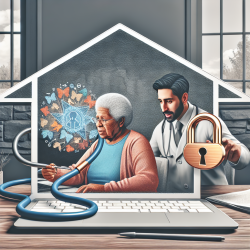The landscape of medical education has evolved significantly, especially with the integration of technology-enhanced learning methods. One such approach gaining traction is Online Case-Based Learning (CBL), which has shown potential in improving practitioner skills. A recent scoping review titled "Online case-based learning in medical education: a scoping review" provides valuable insights into the application and outcomes of online CBL in medical education.
The Shift to Online CBL
The COVID-19 pandemic accelerated the transition from traditional classroom settings to online platforms, necessitating innovative approaches to maintain educational quality. Online CBL emerged as a viable solution, offering flexibility and accessibility to learners worldwide. This teaching method engages students in small, collaborative groups to solve real-world clinical cases, fostering critical thinking and problem-solving skills.
Research Findings on Online CBL
The scoping review analyzed literature from 2010 to 2022, highlighting both positive and negative perceptions of online CBL. Positive aspects included improved work-life balance, enhanced accessibility, and better learner connections. However, challenges such as poor internet access and communication barriers were noted.
Despite these challenges, studies that collected student performance data indicated equivalent or improved outcomes compared to traditional methods. This suggests that online CBL can be an effective tool for enhancing practitioner skills when implemented correctly.
Recommendations for Practitioners
- Adopt a Framework: Incorporate established educational frameworks and learning theories to design and deliver online CBL effectively.
- Leverage Technology: Utilize reliable technology platforms to facilitate seamless communication and resource sharing among learners.
- Focus on Engagement: Develop interactive content that encourages active participation and collaboration among students.
The Path Forward
The review underscores the need for further research to address gaps in study designs and explore the long-term impacts of online CBL on practitioner skills. As educators and practitioners continue to navigate this evolving landscape, embracing evidence-based strategies will be crucial for success.
If you're interested in delving deeper into the findings of this research, you can access the original paper "Online case-based learning in medical education: a scoping review".










